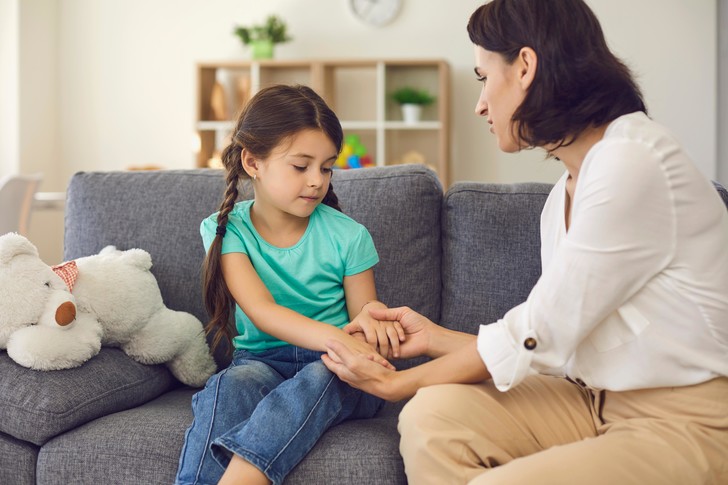Talking to your child is not just possible, both of you need it. But not about everything. There are absolute taboos.
Mom and dad are the guides of the child through his life, they prepare him for the future, give him “wings”, confidence and strength to be himself, or they load them with their own attitudes that slow down the child, if not all, then most of his life. Remember, each of you has phrases that pop up in your head that you remember from childhood: they were often said by parents and other relatives.
Undoubtedly, parents pass on their life experience and part of the accumulated knowledge to the child. Everything is ambiguous precisely with the transfer of emotions, the way to live situations and life events.
Modern psychology agrees that many topics can be discussed with children, the main thing is to choose the context, examples appropriate for the age, and the language they understand.
In the modern world, there are fewer and fewer topics that are forbidden for discussion. And yet they are.
"Your father doesn't understand anything!"
Mom and dad got into a fight. One of them wants to talk. Nearby is a son or daughter. Children's psyche is not ready for "adult" problems. When one parent speaks badly of the other, it is:
- undermines the authority of both;
- kills confidence in the future;
- causes anxiety and distress;
- distorts the picture of his normal, acceptable relationships.
Do not put children in the position of arbitrators. Your relationships and conflicts are exclusively your territory. Do not load the child with a load of adult family problems and relationships. Remember that a child is not your personal therapist.
“How tired of these screaming creatures!”
It doesn't have to be about your child. You should not even utter general phrases that you do not like children at all. Or tell that they did not want to give birth to him, that he got you hard and painful.
In this context, the parent already refuses unconditional love for the child, loads his child with responsibility for his unfinished destiny. An adult denies the right of a son or daughter to life, existence, self-realization. But in fact, he transfers his (ir)responsibility to him: the fact of birth is already there, you can admit your mistakes yourself, but the child will not atone for your guilt or pain.
“Yes, I live with him only for you!”
Load the child with responsibility for yours, but not his family, accustom him to sacrifice for the sake of other people's goals, the inability to be proud and enjoy himself just because he was born and exists. You make you doubt the child's right to life, and besides, you entrust him with the role of your rescuer.
"How could he?"
Or, alternatively, some parents use the child as a tool of detectives - they ask him to find out about the parallel relationship of the second parent
This is another version of adult infantilism. So parents try to throw off some of the blame, shifting the emotional burden on the child, in addition, dumping on him absolutely unnecessary knowledge about the most important adults in his life.
"Look, he's so cool!"
Your spouse or spouse is your choice. I would like to believe that he is conscious. A child cannot choose his parents, he loves them unconditionally, already in fact, he does not need a new father or mother.
What can and should be discussed with children?
It is permissible and necessary to talk about illness, death, divorce, sex, but in a language accessible to the age of the child. You can also pronounce any situation, but with a certain single moral context, without the protection of friends and relatives.


0 Comments